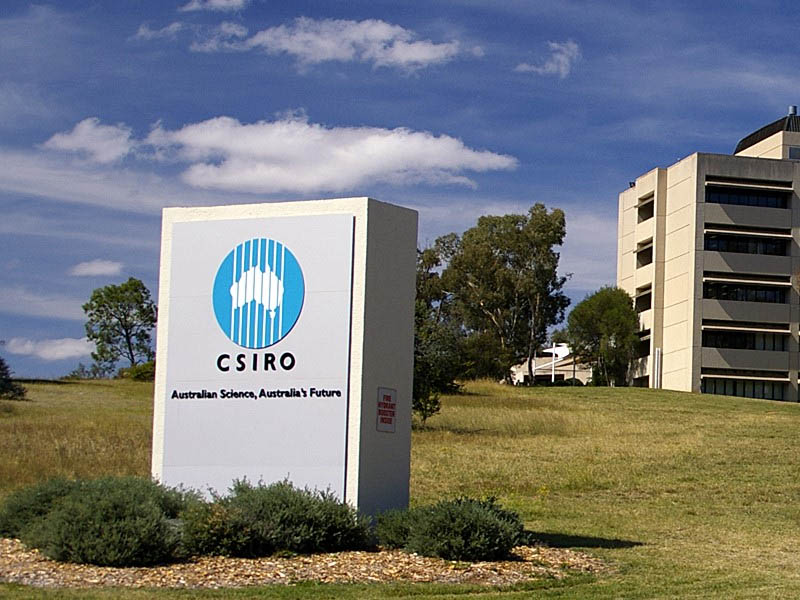It is telling that the freshly-minted Minister for Industry, Innovation and Science Greg Hunt this week publicly offered his “full support” to CSIRO chief executive Larry Marshall.
These words are so often fatal, and will likely be haunting Dr Marshall.
They are words that so very often, after spilling forth from the mouth of a company chairman, chief executives or politician are followed by an interregnum. Then the resignation letter appears on the desk of said ‘fully supported person’ with a pen, ready for signature.

And then it’s off “to spend more time with the family” or to pronounce their “work done” and readiness to “seek other opportunities”.
For Dr Marshall, perhaps he might be missing his home and extended family in the United States too much.
While his imminent departure is of course no certainty, Mr Hunt’s public actions in instructing Dr Marshall to reconfigure the already reconfigured CSIRO – and to add 15 more climate scientists back into the organisation – albeit at the expense of other scientists, are unprecedented.
After all, as Mr Hunt’s predecessor Christopher Pyne repeatedly insisted, CSIRO is independently managed.
“I’ve issued a ministerial directive … that will make climate science a core activity, that we will strengthen and build capacity,” Mr Hunt said this week. As the former Environment Minister he is the Cabinet’s most knowledgeable person on the topic, albeit one that prosecuted the effective climate change-denying policies of the Abbott Government.
But the headlines of a ‘government U-turn’ and the like – when just 15 people out of 5,500 CSIRO staff have been added – seems a little hysterical.
What’s important here is the very fact of the government intervention. And that’s about Mr Turnbull gradually shifting Tony Abbott’s right-wing agenda back towards the centre over the next three years.
Still, CSIRO staff association chief Sam Popovski, while welcoming the announcement, is not happy: “That commitment is not sufficient to maintain critical areas of climate research, including monitoring greenhouse gas emissions.”
It’s also worth pondering whether the furore at the CSIRO and uncertainty over Dr Marshall that has been roiling the organisation had anything to do with the Prime Minister’s surprise decision to shift Chris Pyne after only nine months in the job.
One of the government’s consistently best performers Mr Pyne was, when the PM grabbed power, thrust into a job where he had little experience. The Hunt move also points to the first signs that, with some relief, climate science will now actually feature in the work-in-progress National Innovation and Science Agenda.
Dr Marshall, a veteran Silicon Valley venture capitalist and later company chief executive was always an out-of-the-box choice to run Australia’s storied applied research institute. That he also had a major lawsuit hanging over him made his appointment even more bewildering.
Dr Marshall had been brought in at the start of 2015 by former lawyer and Macquarie banker Simon McKeon, the then-CSIRO chairman.
The appointment was clearly aimed at boosting the commercialisation capabilities of the CSIRO, fitting right in with the free marketeering of the Abbott years.
Former Telstra CEO David Thodey then took over the CSIRO chairman role in November last yest.
Dr Marshall said in a lengthy email to all staff last February that the “CSIRO pioneered climate research, the same way we saved the cotton and wool industries for our nation. But we cannot rest on our laurels as that is the path to mediocrity.”
“Our climate models are among the best in the world and our measurements honed those models to prove global climate change. That question has been answered, and the new question is what do we do about it, and how can we find solutions for the climate we will be living with.”
Ironically, climate science is one of the areas where there is an enormous amount of money to be made in coming decades around the globe. It was typically blind of Mr Abbott not to see that, or the opportunities that CSIRO could help Australia create new industries to fill the hole left by the commodities bust.
As rapidly growing countries begin to dominate the carbon footprint, we must find ways to help them grow sustainably, drawing on the lessons learned by our own experience, Dr Marshall said.
“CSIRO developed many of the clean coal technologies that protected our environment from harmful emissions, but we must do more. We have shown by combining our climate models with smart algorithms that we can dramatically reduce energy consumption of buildings, but can we invent new materials and better building designs that can apply to smarter cities of the future to improve even more?”
For now it seems Dr Marshall may have one more life at the organisation. To be fair to him, his original restructure was in-synch with Mr Abbotts’ science priorities. And it is worth noting that his staff email sang a very similar – in places identical tune – to Mr Thodey’s speech on innovation delivered last week at the University of Technology, Sydney. Coincidence?
As many – including this columnist – were fairly sure that Mr Thodey would take a relatively hands-on role at CSIRO and may well have been asked to smooth the way for Hunt’s directive by Mr Turnbull.
The CSIRO chairman knows the PM intimately from the lengthy negotiations over Telstra’s whopping $12 billion payment for its copper network and lost revenues to the National Broadband Network when he was Communications Minister.
You would have to think maybe he owed the PM a favour for helping him double the telcos share price his during his tenure.
Do you know more? Contact James Riley via Email.

